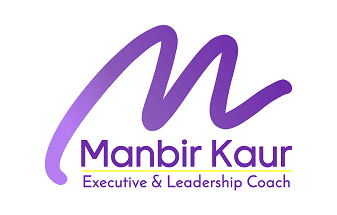
The word ‘team’ in very simple words stands for bringing different people together for a common goal. I find “Trust” being one of the very important elements when people work together in any situation. But practically I have seen that it is a rarely found element in teams @ workplace.
To manage a team wherein the team members don’t trust each other is like steering a sinking ship. In fact it’s not even a team but a group of battling individuals put together. How can anyone expect such a group to ever work together; let alone achieving anything!!! Even the best of talent and minds cannot be made to perform well if there is a missing trust factor. Trust is therefore a ‘key enabler’ to drive a group towards cohesiveness thereby achieving work targets.
What goes wrong?
A human being works from “What is in for me” philosophy whether said or unsaid.
When one of my leaders tells me to follow a particular path or process to achieve the targets, chances are I would start doubting her intentions for my success vs her success in the task. I may not be consciously aware of thoughts like this in my mind but my behavior may be showcasing distrust in some way or the other.
During a conversation with a vice president of a Fortune 500 company I was told how apprehensive she was of attending an offsite her manager has delegated to her. Her apprehension stems from a doubt about the whole situation of whether her manager is deliberately trying to put her in a tight spot. She is troubled by a possibility of difficult conversations or discussions of their department arising at the offisite. She is virtually left imagining herself to be a scapegoat at the offsite. While it may sound far-fetched to you but that’s the reality of the turmoil she was undergoing.
In the above cases, productivity as well as the foundation of relationship is badly hurt as there is a lack of trust.
People Trust People, not Titles
People work with people, so people would like to trust them. There is a human angle involved in it. Trust is a very human sentiment. Working in a team in which I don’t trust my leaders, my immediate manager, my peers, will only prove detrimental to the common objective of the team.
Leadership Now research shows that only 49% of the employees trust senior management these days, which is an alarming sign.
Atmosphere of distrust will only breed contempt and suspicion within teams.
Pay attention to results, and also to the cause!
In my experience of working with people, leaders are missing on the point of trust; they have narrowed down their thinking to the bottom line and results, not to the pillars that connect dots to the ultimate results.
It is seen many a times where cross functional teams in many organizations not trusting each other. There is a lot of blame game thrown around.
In my experience of coaching leaders, the problem of distrust is on a steady rise.
It is the good time to see if your teams have good level of trust among them and with you as a leader. Here are a few questions you may want to ask yourself as a leader to diagnose the true level of trust within your team –
- What makes you think your team trusts you?
- What are the factors that make you think your team doesn’t trust you?
- How important is it for you that your team trusts you?
- How important is it for you that you trust your team?
- How does trust make a difference in achieving your team’s goals?
- What makes you think you trust people?
- What makes you think you don’t trust your team?
- What are the 3 short-term benefits you can achieve by enhancing mutual trust level of your team?
- What are the 3 long-term benefits you can achieve by enhancing mutual trust level of your team?
- How would you know you have achieved a better trust level in your team?
- What are the first steps you can take to enhance trust?
The answers to the above questions would need careful introspection and would also be able to act as a window for you to analyze where the problem lies. Do take out time to inspect yourself and your actions to gain confidence of your team and build into them an environment of trust.
In a nutshell, do take the right steps to build in a healthy trusting environment. Trust promotes productivity, free communication, risk-taking environment and last but not the least a better organizational culture.

